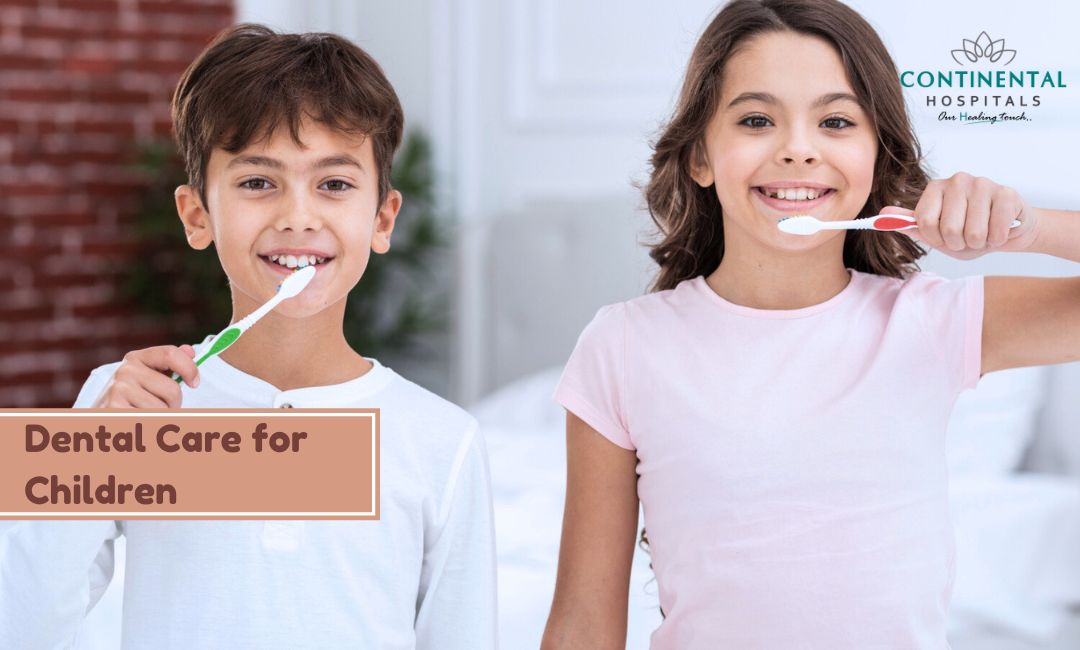Dental care is a crucial aspect of children's overall health and well-being, laying the foundation for a lifetime of healthy smiles. From the eruption of the first tooth to adolescence, proper oral hygiene practices are vital in preventing dental issues and promoting optimal development. Early dental care not only prevents tooth decay and gum disease but also instills essential habits that can last a lifetime.
In this guide, we'll delve into the importance of dental care for children and provide comprehensive tips and recommendations for parents. Starting from the first dental visit to addressing common dental issues and age-specific care, we aim to empower parents with the knowledge and resources needed to ensure their child's oral health. By understanding the significance of early dental care and implementing effective strategies, parents can help their children maintain healthy teeth and gums, setting them on the path to a lifetime of confident smiles.
Importance of Early Dental Care:
Preventing Tooth Decay: Early dental care helps prevent tooth decay, which can lead to pain, infections, and even tooth loss if left untreated.
Promoting Healthy Development: Proper oral hygiene supports the healthy development of teeth and gums, ensuring proper alignment and function.
Establishing Healthy Habits: Introducing children to good dental habits early instills a lifelong commitment to oral health and reduces the risk of dental problems in the future.
When to Start Dental Care:
First Dental Visit: The American Academy of Pediatric Dentistry recommends scheduling the first dental visit by the child's first birthday or within six months of the eruption of the first tooth.
Early Intervention: Early dental visits allow dentists to identify any potential issues early and provide guidance on proper oral hygiene practices.
Dental Care Practices for Children:
Brushing Techniques: Teach children to brush their teeth twice a day using a fluoride toothpaste and a soft-bristled toothbrush. Use a pea-sized amount of toothpaste for young children and supervise brushing until they can do it effectively on their own.
Flossing: Start flossing as soon as your child has two teeth that touch. Use floss picks or gentle flossing tools designed for children to clean between teeth and along the gum line.
Healthy Diet: Encourage a balanced diet rich in fruits, vegetables, whole grains, and lean proteins. Limit sugary snacks and beverages, as they can contribute to tooth decay.
Regular Dental Visits: Schedule regular dental check-ups every six months or as recommended by your child's dentist. These visits allow for professional cleanings and routine examinations to detect any dental issues early.
Common Dental Issues in Children:
Tooth Decay: Tooth decay, also known as cavities, is one of the most common dental problems in children. It can be prevented with proper oral hygiene and diet modifications.
Gum Disease: Gingivitis and periodontitis can occur in children due to poor oral hygiene. Teach children to brush and floss effectively to prevent gum disease.
Malocclusion: Malocclusion, or misalignment of the teeth, may require orthodontic treatment to correct. Early detection and intervention can help address malocclusion issues effectively.
Dental Care Tips for Different Age Groups:
Infants (0-2 years): Clean your baby's gums with a soft cloth or infant toothbrush after feedings. Once teeth erupt, begin brushing with a fluoride toothpaste.
Toddlers (2-5 years): Encourage independent brushing with supervision. Use a fun, age-appropriate toothbrush and toothpaste to make brushing enjoyable.
School-Age Children (6-12 years): Teach proper brushing and flossing techniques. Emphasize the importance of regular dental check-ups and the consequences of poor oral hygiene.
Teenagers (13+ years): Monitor oral hygiene habits and address any orthodontic concerns. Reinforce the importance of avoiding tobacco products and maintaining a healthy diet for optimal oral health.
Addressing Dental Anxiety:
Open Communication: Talk to your child about dental visits in a positive and reassuring manner. Address any fears or concerns they may have and explain what to expect during the appointment.
Choose a Pediatric Dentist: Consider taking your child to a pediatric dentist who specializes in treating children. Pediatric dental offices are often designed to be child-friendly and create a comfortable environment for young patients.
Distraction Techniques: Bring along comforting items such as a favorite toy or book to help distract your child during the dental visit. Some dental offices also offer amenities like TVs or tablets to keep children entertained.
Conclusion:
Proper dental care is essential for children to maintain healthy teeth and gums. By starting early and establishing good oral hygiene habits, parents can help their children enjoy a lifetime of healthy smiles. Remember to schedule regular dental check-ups, encourage proper brushing and flossing techniques, and address any dental issues promptly to ensure optimal oral health for your child.
Related Blogs:
.webp)







